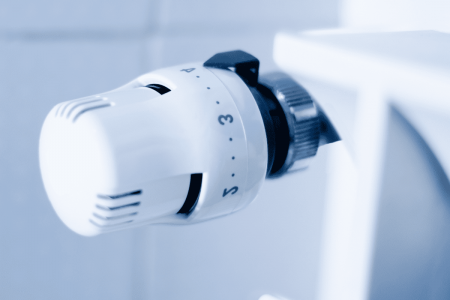Do you want to learn about the benefits of hydronic heating? Are you considering alternatives to a forced air system? Well read on to find out why it might be time to make the switch.
Also known as radiant heating, hydronic heating has become increasingly popular over the years. And with good reason. With families more focused on cleaner air and energy efficiency, two things hydronic heating excels in, it only makes sense that it has come to the fore.
In this article we’ll talk about the different types of hydronic systems, and the pros and cons of radiant heat vs forced hot air. So let’s get to it!
Types of Hydronic Heat Systems
Looking for a hydronic heating system for your home? Well, there are three main types from which you can decide which is the best for your needs.
Basically, all hydronic systems boast one common thing: Hot Water. These systems propel hot water to the heat exchangers, radiators, or under-floor tubing.
However, different kinds of hydronic heat tends to work differently using a specific medium of heat transfer. Below are a list and a brief description of the various types of hydronic systems available from which you can choose. We’ll also explain why a particular system might be the best choice for you.
• Baseboard: Usually referred to as the hot water baseboard heating system. Essentially, a baseboard unit features a painted steel housing that hides the hot water pipe enclosed by metal fins. As a result, they radiate heat easily to suit your heating needs.
• Hydronic Radiant Floor: As the name suggests, this hydronic system mainly uses a fully finished floor as a massive radiator. It works by pumping hot water via a plastic tubing set up underneath the floor surface. You can install this unit beneath a finished floor with tile or wood to conduct heat well.
• Hydro-Air Heating: This unit requires ductwork and an air handler to operate. Typically, the water gets forced into a heat exchanger found in the air handler to warm it and distribute throughout the house.
Why is Hydronic Heating Worth It?
For decades now, hydronic systems have been one of the most used heating systems worldwide. Because they include chilled and heated water loops, these systems are suitable for heating and large-scale air-conditioning buildings such as offices and campus facilities.
With a radiant heating system, you can rest assured that you will get hot water throughout the year. Besides that, these units are highly energy-efficient, which is why most people prefer them. In the long run, hydronic heat systems will be significantly cheaper than forced air systems.
Energy Efficient
These systems are about 70% more energy efficient than other heating methods, like those that depend on electricity. Water tends to conduct heat energy better than air. Since they are well sealed, these systems don’t create a lot of thermal losses, decreasing your monthly energy bills.
Cleaner Air in Your Home
Hydronic systems don’t form any dirt while in operation. This is ideal for people with allergies.
Besides that, they gently and evenly circulate heat and without instant on and off cycles that form turbulence. Because of this and the fact that these units operate at quite low temperatures, your home is bound to receive cleaner air.
Saves Space
Since installation occurs beneath surface floors, a hydronic heat is great do saving space. Unlike other heating units, they don’t require an extra room inside or outside your house.
Less Expensive To Run
Even though the upfront costs of installing a hydronic heating system are quite higher, operating these units is cost-effective. And if your home is larger, you can expect to save a lot more and still get hot water and a comfortable living environment.
More Reliable
Once your unit gets installed, there’s nothing else to worry about. In other words, these heating systems are pretty effortless and convenient to use, with the boiler and the pump being only the working parts.
You’ll find most of these units come with long warranty periods of up to 25 years.
Safe to Operate
Hydronic heat often doesn’t need electrical connections. And they don’t have exposed flames. Therefore, they are incredibly safe to operate at home.
Long-Lasting
Boasting solid and quality material construction, a typical hydronic heating unit is durable. For instance, a unit made of cast iron and less movable parts can effectively run for up to 25 years with less maintenance.
On the other hand, heating system with moving parts found in a warm-air furnace can last between 10 to 15 years, but with frequent servicing and maintenance.
Disadvantages of a Hydronic Heating System
While hydronic heat is great in many ways, it doesn’t come without disadvantages. For those of you wondering how long it takes for your radiant floor to heat up, once you turn on a unit, you will have to wait for about 30 minutes to get hot water.
Water could freeze during a power outage: Hydronic heating systems are typically made to use power continuously to heat water. So, in case there’s a power outage, the water inside the pipes will easily freeze.
Hard to access pipes when there’s a problem: Since most of these units have installations done beneath floor surfaces, accessing the pipes can be pretty hard.
High upfront installation costs: Setting up a hydronic heat is expensive upfront. You can expect it to cost $10 or more per square foot.
Why Hydronic Systems Work So Well
Hydronic systems features an excellent design that guarantees a longer time of operation. On top of that, you will find them with remarkable parts that ensure flawless heating and air conditioning. Besides that, they allow for multiple installations, which all are geared to ensuring efficient performance.
FAQ
Q: Can a hydronic heating system be used to cool?
Yes. As much as more emphasis is put on the heating, hydronic systems also offer efficient and comfortable cooling conditions in your home. In fact, most of them come fitted with both heating and cooling options.
Q Does hydronic heating use electricity?
Yes. The hydronic heating system can use electricity to push water to the radiators for heating or cooling before being distributed to the rest of a house.
Q Can you retrofit hydronic systems?
Definitely yes. You can retrofit the panels of hydronic systems to most of the projects with access to the subfloor.
Q What’s the best furnace for a hydronic heating system?
Usually, a furnace heats and distributes air throughout the house using ducts. If you are looking for the best furnace for a hydronic heating system, go for an electric one as it doesn’t emit fuel or energy through the chimney.
Conclusion
Hydronic systems offer a great alternative way to heat and cool your home. Not only are they extremely durable, but they are highly efficient.
While hydronic heat is not for everyone, it’s definitely worth considering if you have a larger home and have issues with allergies and dust.

Nick Lopresti is the founder of YourH2Home and a home improvement expert. He has years of experience writing about various home improvement topics, mostly as it pertains to water systems.
